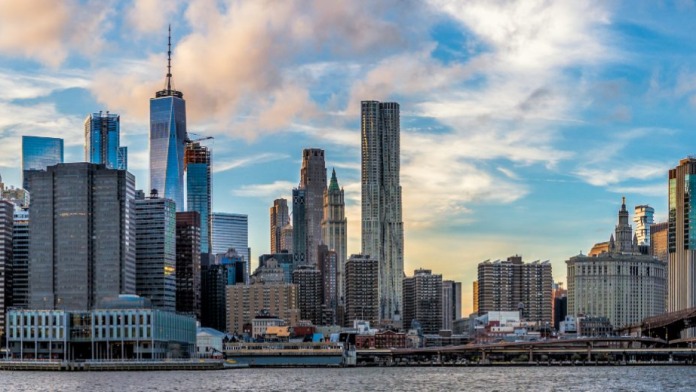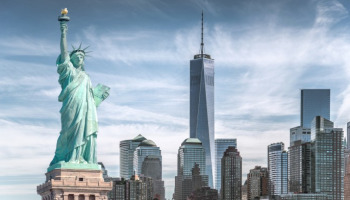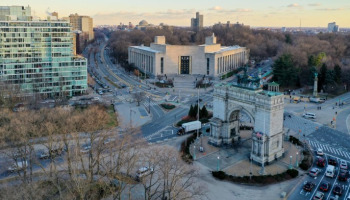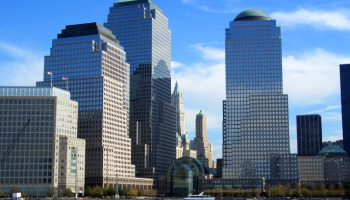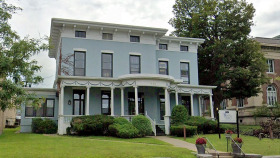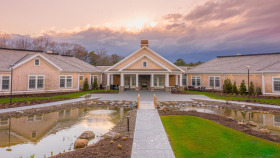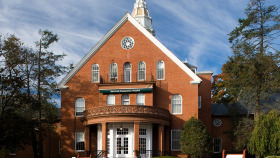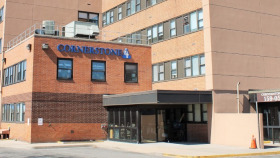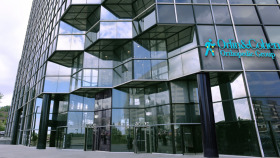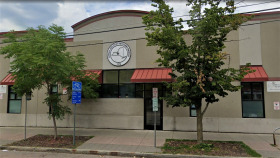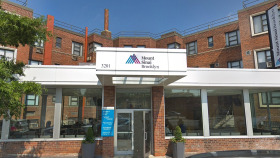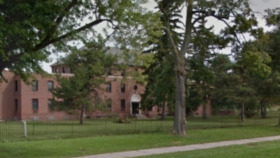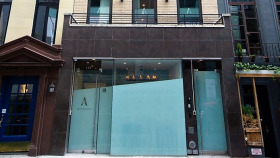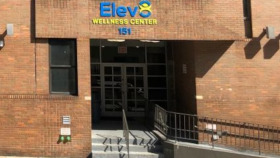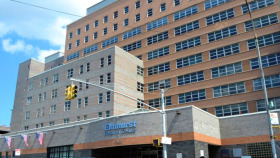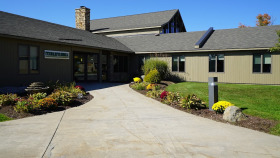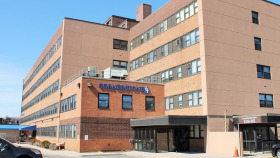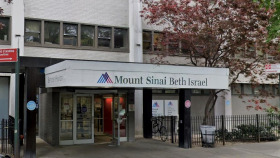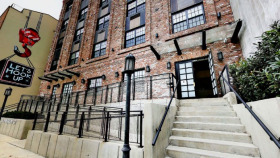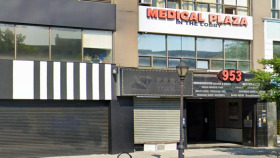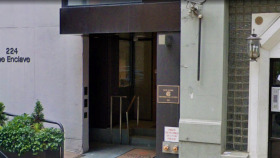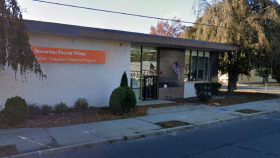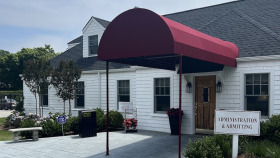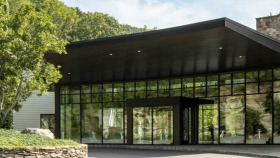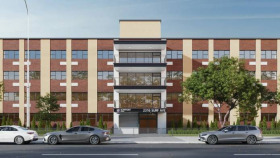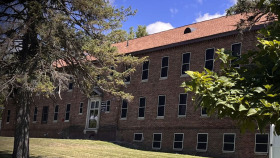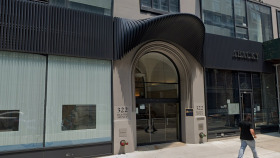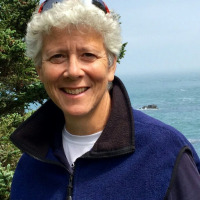Expert Insights
Moms manage competing priorities, screaming babies, work, and managing a household, the stress of which can take its toll. Moms are often chronically exhausted and struggling to cope, so it’s no wonder that many turn to substances for relief. After all, that’s what the media shows us with slogans like “Mommy needs wine” printed on baby gowns! But where are we for the moms who fall down the slippery slope of alcohol addiction? When attempting to access recovery services, the number of mothers who need help continues to rise. One proposed solution is allowing children to attend inpatient treatment with their mothers. I think this is a very good idea because, generally speaking, moms want to put their kids first. By implementing this solution, the whole family can come first while mom gets the support she needs.
~ Peg O’Connor
How Much Does Drug and Alcohol Rehab Cost in New York
New York is ranked 22nd nationwide in terms of addiction treatment affordability, with an average cost of addiction treatment of $56,653.
- Medical detox is the most expensive, with an average cost of $139,670
- Inpatient rehab in New York costs an average of $49,993
- Outpatient rehab in New York costs and average of $8,307
- Outpatient methadone treatment is the most affordable, with an average cost of $7,381
Keep in mind these costs are averages for all types of addiction treatment, including medically supervised detox and residential inpatient rehab, both of which drive up the average. These numbers also reflect the full cost of drug rehab without any insurance coverage. Most individuals can expect to pay far less than these prices for more typical outpatient drug treatment, MAT, and addiction therapy.
Cost of Drug Rehab in New-York Compared to Nearby States
Here is how much addiction treatment costs in New-York vs nearby states like Pennsylvania, Vermont, and New Jersey.
The exact cost of drug and alcohol rehab in New York will vary significantly depending on the type of program as well as the following factors:
- The treatment type (inpatient, outpatient, dual diagnosis, etc.)
- The type of facility (luxury, hospital, basic accommodations, etc.)
- The length of the treatment program (30 days vs. 90 days or longer)
- Which insurance providers and plans the facility accepts
- Whether government funding is involved
- The facility’s location (upstate vs. the city)
Regarding inpatient vs. outpatient care, you can expect to pay more for a residential stay for drug or alcohol rehab in New York simply because the expenses include room and board. Surprisingly, you may find that alcohol and drug rehabs in New York are often more expensive upstate. This is primarily because it’s more costly to live upstate, but many find that getting as far away from the city and other metropolitan areas is more conducive to their needs.
Fortunately, insurance can help mitigate the costs as most plans provide at least partial coverage, if not full coverage. Of course, you would have to find an in-network rehab facility associated with your insurance provider, which is true whether it’s private or comes from Medicaid. To determine which facilities work with your provider, all you have to do is reach out to your insurance provider or check their website.
If you do not have insurance, you’ll need to find state-funded programs offering low-cost or free treatment. Some rehabs may also offer payment plans based on your financial situation.
How to Pay for Drug Rehab in New York
As of 2024, there were over 960 drug rehab facilities across the state of New York. These facilities accept several payment methods. Of those treatment facilities, the following numbers reflect how many accept their respective payment methods:
There are a few different ways to pay for substance use treatment. In New York State, most people use the following methods:
Private Pay and Insurance
Many people pay for alcohol and drug treatment in New York by using their health insurance. New York and federal law mandate that most insurers cover mental health and addiction services at the same level of coverage as their medical services. Major insurers in New York state include the following companies:
- Fidelis
- MVP
- CDPHP
- Highmark
- United Healthcare
- Aetna
- Blue Cross Blue Shield
- Beech Street
- Carelon Behavioral Health
- Emblem Health
- Optum
- Wellcare
Medicaid
Medicaid is the New York state insurance program for people with low income. The cutoff for what income would qualify you to get Medicaid varies depending on how many people are in your household. You can apply for Medicaid at your local social security office or through New York’s online health insurance marketplace. New York state offers traditional Medicaid, but most people have plans that are managed by a commercial plan administrator. Children and some pregnant women can get Medicaid in New York without regard to their immigration status.
Medicare
Medicare is a federal health insurance program for people over 65. You can apply for traditional Medicare or you can get a Medicare plan that is managed by a commercial insurer. These are known as Medicare Advantage plans. Medicare Advantage must offer the same coverage as traditional Medicare by law, but they can impose a provider network.
Military Benefits
Military health benefits also cover addiction treatment. If you have VA Healthcare, you can get addiction treatment through the VA health system. They offer a full range of addiction services. CHAMPVA also covers addiction treatment, but you will have to verify where you can use the benefit. Some VA hospitals participate in CHAMPVA, and many civilian providers who take Tricare also accept CHAMPVA. If you have Tricare, you can get benefits anywhere with Tricare’s provider network. New York falls within the Tricare East region. Humana administers benefits for Tricare East.
Tribal Programs
There are nine federally recognized tribal nations in New York state. Members of these tribes can access outpatient care, including mental health and addiction care, at the tribal clinics in those nations. For residential rehabilitation, Native American Indians can access Partridge House. Partridge House is a residential alcohol and drug rehab for Native American Indians located in the St. Regis Mohawk nation.
Free Treatment Programs
You can find free and low-cost addiction treatment throughout New York state. There are several places you can look. Some charities offer or pay for addiction care. There are federally funded and state funded programs that also help people get free or low-cost substance use treatment. To access state resources, you will need to verify that you’re a New York resident. Sometimes, you can also find resources at the county government level.
Another way to get free or nearly free addiction care is to find an agency that will cover your fees. You can do this by looking for scholarships. Some addiction treatment centers, as do some charities, churches, and non-profit organizations, offer scholarships.
Other Low-Cost Options
- Many addiction treatment centers will offer an income based sliding scale to people without insurance.
- Any facility that receives funding from New York State for addiction and substance abuse treatment cannot turn away people because of their inability to pay. The agency that provides this funding is OASAS.
- Some outpatient primary care clinics receive federal funding to ensure a healthcare safety net exists throughout the country. These clinics are designated as Federally Qualified Health Centers. They must offer mental health and addiction treatment. They cannot turn away anyone for lack of ability to pay or for lack of documentation.
Addiction Treatment Resources in New York
This is a list of some addiction treatment centers where you can either get free treatment or where they won’t turn you away for inability to pay.
Salvation Army Adult Rehabilitation Centers
The Salvation Army operates residential drug and alcohol rehab centers that are free of cost. They have locations throughout New York state including in Buffalo, Rochester, Syracuse, Albany, Binghamton, Hempstead, and Manhattan. Their program is funded by the Salvation Army Store and donations. Program participants work in their stores as part of their treatment and to help them gain work experience.
New York State Residential Rehabs
New York State owns and operates several residential rehabs throughout the state. These rehabs are open to anyone who lives anywhere in New York. They won’t turn anyone away for lack of funds or insurance.
St. Lawrence Addiction Treatment Center
This is a 40 bed facility in Ogdensburg, New York, near the Canadian border. The staff at this facility are capable of caring for people who also need treatment for mental illness at the same time. They serve adults. They use medication to help people withdraw from substances. People who are on medications for opioid use disorder can continue to receive them while in treatment.
Dick VanDyke Addiction Treatment Center
This is a 30 bed treatment center in Ovid, New York, serving the central part of the state. They offer gender specific treatment to men and women. In these separate tracks they address issues that are pertinent to each gender. They encourage supportive family and friends to become involved in treatment. Patients participate in therapy in both individual and group settings.
Bronx Addiction Treatment Center
This treatment center has 38 beds for adult men and women. They specialize in working with people who are involved in the criminal justice system and people who have experienced intimate partner violence. People who speak only Spanish will be able to find services in their language here.
Charles K. Post Addiction Treatment Center
There are two levels of care at this Long Island facility. They have an inpatient hospital level for people who have acute mental and physical health needs while they’re getting addiction treatment. They also have a community residential treatment program. They have vocational training to help people be work ready when they are discharged.
Norris Addiction Treatment Center
The Norris Addiction Treatment Center is located in Rochester, New York. They treat adults for alcohol and drug use, but they also specialize in treating people for gambling addiction. People who are deaf or who are hard of hearing will find that this program can accommodate their needs. They have 44 beds.
Margaret A. Stutzman Addiction Treatment Center
This is a short-term residential rehab located in Buffalo, New York. They specialize in the trauma informed care of women, trauma survivors, and people who are pregnant. Patients learn about addiction and relapse prevention by participating in psychoeducational groups. As with all New York state owned facilities, people with co-occurring mental health needs are welcome.
McPike Addiction Treatment Center
The McPike Addiction Treatment Center is a 68 bed facility in Utica. They are situated inside the Mohawk Valley Psychiatric Center campus. They treat adult men and women in one track but also have a treatment track that is specific to women. The length of stay is individualized to each person’s needs. People with mental health treatment needs are welcome.
Creedmoor Addiction Treatment Center
This is a 28 bed residential rehab in Queens Village. They have special services for women and homeless men. In addition to providing alcohol and substance treatment, they also treat people who have gambling addiction. They have built their treatment environment to look like a home and not a hospital. They offer individual, group, and family counseling.
South Beach Addiction Treatment Center
South Beach Addiction Treatment Center has 30 beds in Staten Island for adult men and women. The length of treatment depends on each person’s needs, ranging from two to six weeks. They welcome people who also need mental health treatment while they’re getting substance treatment. Therapy takes place in individual and group settings.
Russell E. Blaisdell Addiction Treatment Center
The Russell E. Blaisdell Addiction Treatment Center is an all male facility where men who are registered sex offenders can get treatment. They have 52 beds. They also specialize in treating people with traumatic brain injuries. They will work with patients to help them quit smoking. They will work with people who are on methadone maintenance.
Kingsboro Addiction Treatment Center
The Kingsboro Addiction Treatment Center has 70 beds in Brooklyn. They work with adult men and adult women in separate treatment tracks. There is also a treatment track for people who speak only Spanish. They take pride in their cheerful decor and their environment which is designed to encourage healing.
Richard C. Ward Addiction Treatment Center
This is a 48 bed treatment center for people who identify as female and are over the age of eighteen. They are located in Middletown, New York. They use medications to assist people withdraw from substances like opioids and alcohol. They use evidenced based therapies as well as complementary therapies like yoga and acupressure.
New York Drug Use Statistics
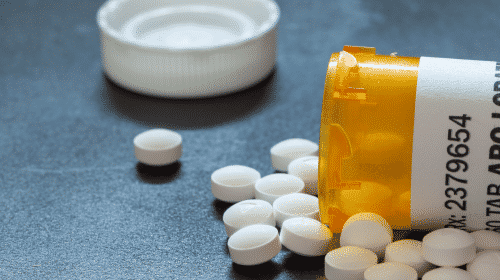
In 2019, opioids were attributed to 83% of all overdose-related deaths.
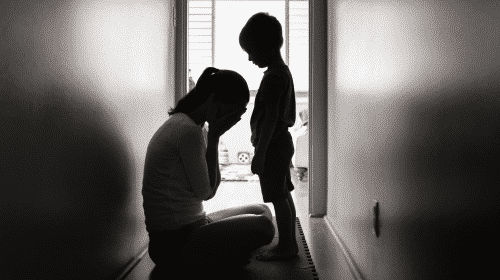
In the state of New York, fentanyl was present in 68% of all fatal overdoses.
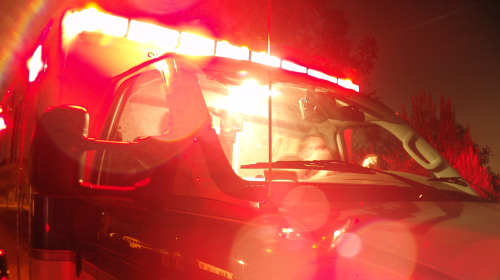
Depressants and opioids are present in 51% of New York State’s overdoses.
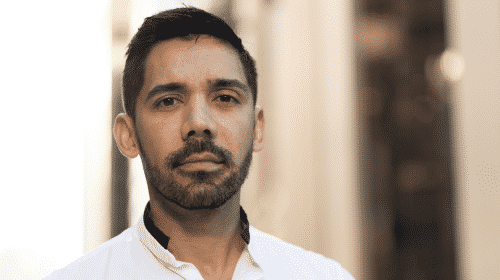
Latinos in New York had the highest rate of overdose-related incidents.
As a direct consequence of substance use, more people die yearly compared to the number of people involved in fatal motor vehicle accidents and incidents with firearms in New York.2 For example, there were 2,991 opioid-related deaths in the state in 2018, and excessive alcohol use contributes to over 4,000 deaths annually.3
Drug Laws in New York
Health Insurance Parity Law
If you have health insurance in New York, by law, your insurance can’t deny you coverage if you need addiction treatment. Health plans in New York are not allowed to make you fail a lower level of care first for medically necessary care. If you have been denied coverage, you can get help by calling the New York Community Health Access to Addiction and Mental Health hotline – also known as CHAMP. Their phone number is 888-614-5400.
Cannabis Possession
On March 31, 2021, New York legalized recreational cannabis use for people over the age of 21. It’s now legal for adults to carry three ounces of cannabis or 24 grams of cannabis concentrate. At home, adults can have up to five pounds of cannabis.
Places Where Cannabis Is Still Not Allowed
Smoking cannabis is still against the law any place where smoking is illegal. If you rent in a place that doesn’t allow smoking, your landlord can also prevent you from smoking cannabis. Using cannabis while operating a motorized vehicle remains illegal.
Employment Drug Testing
Employers in New York are no longer allowed to test for cannabis during employment drug screens. There are no exceptions for any type of job. They can still test for other drugs. Cannabis is still illegal at the federal level so any federal government jobs that are located in New York state can still test workers for cannabis.
New York State 911 Good Samaritan Law
If you call 911 because of a drug overdose for yourself or someone else in New York, this law protects you. People who this law protects include those who are in the possession of drug paraphernalia, people with less than 8 ounces of controlled substances, and people under 21 with alcohol.
Resources
- New York State Department of Health. (2015). Priority Area: Mental Health/Substance Abuse – The Burden of Substance Abuse.
- Executive Office of the President of the United States. (2009). New York Drug Control Update.
- National Institute on Drug Abuse. New York: Opioid-Involved Deaths and Related Harms.
- Findtreatment.gov. (n.d.). Results: New York State
- Chanell Baylor. (2021). Medication-Assisted Treatment (MAT) | SAMHSA. Substance Abuse and Mental Health Services Administration.
- New York State Department of Health. (n.d). New York State’s 911 Good Samaritan Law Protects YOU
- Governor Hochul Signs Legislation Package to Combat Opioid Crisis. (n.d.). governor.ny.gov.
- Includes CHAMP helpline for dealing with insurance denials: https://oasas.ny.gov/treatment/paying-treatment
- New York Medicaid: https://www.health.ny.gov/health_care/medicaid/
- Cannabis in NY: https://www.health.ny.gov/community/cannabis/
- Drug testing: https://www.drugtestlawadvisor.com/2023/04/what-new-york-employers-need-to-know-about-marijuana-two-years-after-legalization/
- New York 911 Good Samaritan Law: https://www.health.ny.gov/diseases/aids/general/opioid_overdose_prevention/good_samaritan_law
- New York State-owned treatment centers: https://oasas.ny.gov/addiction-treatment-centers
- Medicare: https://medicareadvocacy.org/medicare-info/medicare-coverage-of-mental-health-services/
- Tricare: https://www.tricare.mil/CoveredServices/IsItCovered/SubstanceUseDisorderTreatment
- New York Veterans Benefits: https://veterans.ny.gov/health-care
- CHAMPVA: https://www.va.gov/COMMUNITYCARE/programs/dependents/champva/index.asp
- Partridge House: https://www.srmt-nsn.gov/partridge_house
- Health Care for Undocumented Immigrants: https://www.centerforhumanrights.org/post/how-to-access-healthcare-services-as-an-undocumented-immigrant-practical-tips
- Office of Addiction Services and Supports: https://oasas.ny.gov/system/files/documents/2023/09/addiction_data_bulletin.pdf
- CBS News report: https://www.cbsnews.com/newyork/news/exclusive-new-york-city-accounted-for-10-of-all-fentanyl-seized-in-u-s-in-2023

